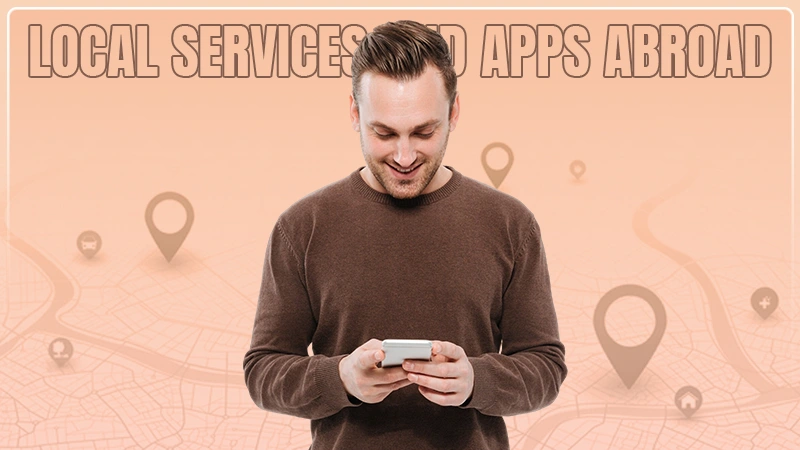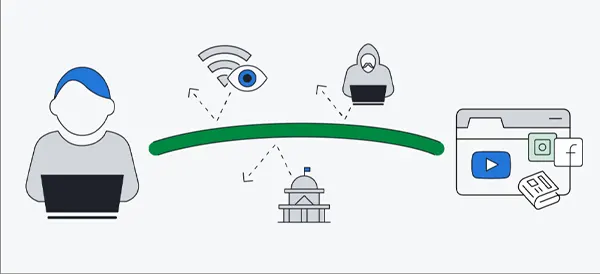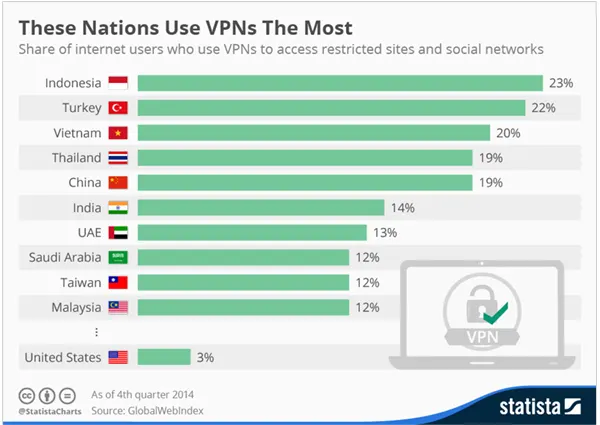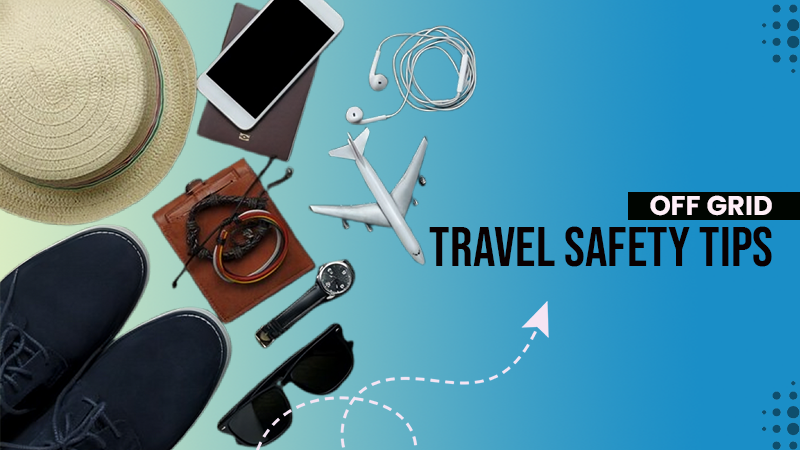

Sometimes when you are trying to log into a certain site or platform, you are met with an annoying message that says “not available in your region” but have you ever wondered why this happens?
This is called Geo-blocking. Based on your IP (Internet Protocol) address your location can be tracked not your exact location but your country and when you are trying to access something that is not available in your region you are blocked from using it.
But how does it work and how you can bypass Geo-blocking? In this article, we’ll take a deep dive into the topic of how you can use local services and apps in foreign countries.
What Is Geo-Blocking?
Geo-blocking means when a certain individual is restricted from using or accessing a certain site or platform based on their geographical region. Their region is determined by their IP address.
You can’t hide your IP address, it is going to be visible as long as you are surfing on the internet. This is because if you try to hide your IP address, the server won’t get to know where the request is coming from for access and where to send the data.
Let’s understand it this way, suppose you are from Australia and you want to open a site whose server is in Japan and doesn’t allow visitors to any other region. So if you try to open it you won’t be able to do anything, you’ll be blocked because you are from a region where this site is not available.
Other than this, your home county can also block your entry to sites from different regions for security reasons.
How Does Geo-Blocking Work?

You should know how geo-blocking works. When you try to open or use any platform your IP address is searched through the database and if your IP address is from a country where this service is not available you’ll be blocked automatically.
But IP address is not the only way for your region to be found, WebRTC, Payment data location, Deep Packet Inspection (DPI), GPS data, or Router hops, packet latencies, and jitter can also be used to find your location and block you access.
But why is your permit denied? This is because Copyright and Licensing Agreements, Price Discrimination, Availability of Local Versions, and Government Regulations can be some of the reasons why your request is denied.
How Can You Bypass Geolocation Restrictions And Access Local Apps?

Now you know why you can’t use some platforms, but there are ways for you to bypass this and use anything you want. This could be helpful as you are traveling to foreign countries or doing some research, so let’s look at ways to bypass geo-blocking:
1) Use A VPN
The easiest and most efficient way is to use any VPN (Virtual Private Network). All you have to do is if you are restricted from using any site choose a region where that platform works and select that on your VPN now your IP address has changed, and you can use it without any problem.
But you need to have a good VPN and there’s a possibility that you might still not be able to use some sources because of their advanced VPN tracking technology.
2) Use Proxy Servers
Another great way to bypass geo-blocking is using Proxy Servers. Just like VPN, proxy servers also provide you with a different IP address which helps you bypass.
But unlike VPN you don’t have to install this on your device, it will be on your browser. However, proxy servers offer limited features in the free version, so you might need to spend some money to get the full benefit.
3) Use The Tor Browser
You might know about the Tor Browser if you have ever tried to access the dark web, and if not, then let us tell you it is the best browser. Tor browser keep you anonymous, it’s like a VPN but in the form of a browser.
It hides your IP address with its own as you are surfing across the web, leaving no trace behind. It creates a traffic undetectable by hackers and keeps you safe.
4) Use Smart DNS
DNS (Domain Name System) can also help you bypass geo-blocking. DNS makes any domain name reliable for your device. In simple language, it converts any domain address into an IP address.
When you use smart DNS, it changes your local DNS to another country’s DNS to which you want to have the connection.
DID YOU KNOW?
There are over 1.6 billion people across the world who use VPNs.
Factors To Consider When Choosing A VPN To Bypass Geolocation Restrictions And Access Local Apps & Services
There are some factors that you have to take into consideration while using local apps and services by using VPNs in different counties. These factors will make things smoother for you:
Choose a Credible VPN: First things first, you have to use a good VPN that can offer you several regions and is widely trusted. Using a free one comes with limitations and can create some problems.
Ensure Network Connectivity: You need a stable, high-speed network for smooth surfing and access. Another thing is VPN requires more data to work so you need to make sure that you have Wi-Fi or more than enough data.
Consider Robust Encryption: Choose a VPN that can offer you a good encrypted connection, like AES-256. This is for your data safety and privacy.
Conclusion
You must’ve understood by now why Geo-Blocking is done and how you can bypass it. But the thing is it might be illegal in some countries. You are unable to gain permission for something, and if you still use it with the help of any third-party service, that is a crime.
So always take care and stay away from trouble. Most of the countries do allow bypass geo-blocking but some are exceptions so be aware. Rest, there’s nothing wrong with it.












